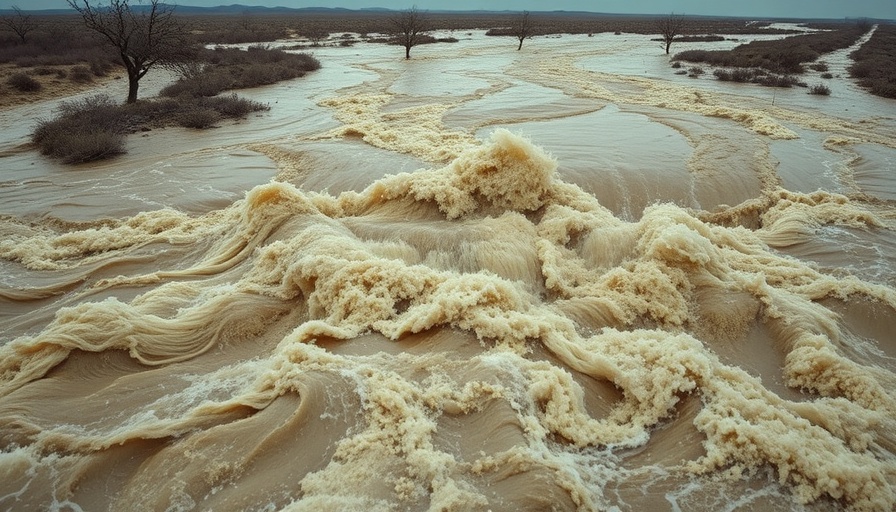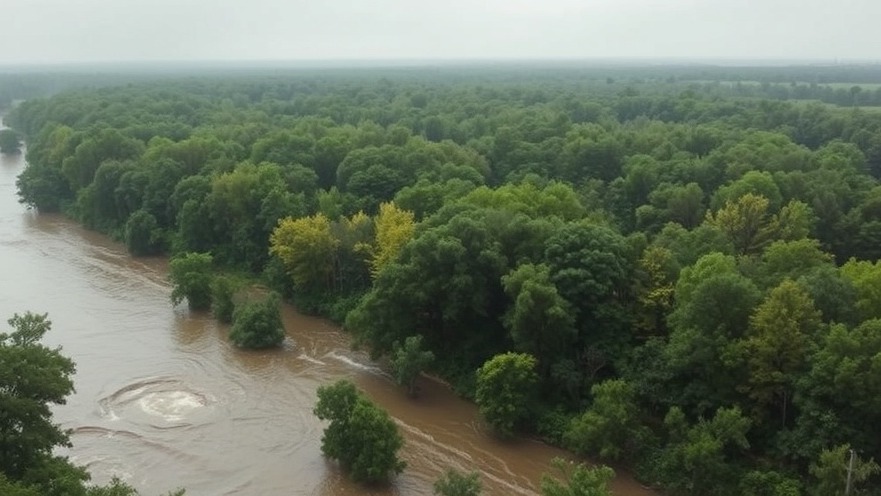
Texas Hill Country Floods: A Consequence of Climate Change
As heavy rains drenched the Hill Country in Texas over the Fourth of July weekend, a grim reality unfolded—a landscape transformed into a flood zone, leading to over 100 reported deaths, including 27 children and counselors from Camp Mystic. Meteorologists and climate scientists emphasize a stark truth: these extreme weather events are not merely coincidences but rather the alarming effects of climate change. This increasing intensity of rainfall, fueled by the warm ocean temperatures and atmospheric conditions, signals a broader trend that communities across Texas must confront.
The Science Behind the Downpours
Climate scientists are stressing that the heavy rains experienced in this year’s floods exemplify how a warming atmosphere intensifies ordinary weather patterns into life-threatening disasters. According to Claudia Benitez-Nelson from the University of South Carolina, extreme weather, including heavier rainfall events, is becoming more common. With rising temperatures, the atmosphere holds more moisture, translating to increased rainfalls. The Intergovernmental Panel on Climate Change (IPCC) underscores this phenomenon by stating that a temperature increase of approximately 1°C allows the atmosphere to hold 7% more moisture, fundamentally impacting weather extremities.
Infrastructure in Jeopardy
Furthermore, Texas's outdated infrastructure exacerbates this vulnerability. The state is notorious for flash floods due to its hard-packed soil, which causes rainwater to run off rather than soak into the ground. Communities accustomed to heavy rains are often unprepared when overwhelmed by unprecedented amounts of water, leading to catastrophic flooding conditions. This issue is likely to worsen as predictions from the fifth National Climate Assessment indicate that extreme precipitation days will rise, highlighting the urgent need for infrastructure reforms in flood-prone areas.
Historical Context and Future Predictions
The sobering reality is that past floods serve as a warning for what could become a regular occurrence in the future. As noted by officials, the July floods were not solely the result of a full-strength storm but rather remnants of a tropical storm coupled with rising temperatures and humidity levels. Local climatologist John Nielsen-Gammon emphasizes the critical need to address these emerging risks associated with climate change. As he points out, when weather patterns shift, they often create a perfect storm for flooding events, leading to potential loss of life and significant damage.
Community Response and Resilience
The aftermath has seen communities rallying together in search and rescue efforts, with volunteers joining search teams to find missing individuals. On the ground, local authorities are grappling with the extent of the disaster, while families mourn the burgeoning list of casualties. This tragic loss has sparked discussions among residents and leaders alike about effective warning systems and building resilience against future disasters.
Making Informed Decisions for a Sustainable Future
The spotlight on climate change poses critical questions for Texas residents regarding future preparedness. Decisions made today concerning urban planning, environmental policies, and resource management will directly shape the state’s response to climate-related disasters tomorrow. Learning about climate change implications empowers residents to advocate for necessary adaptations and sustainable practices within their communities. Immediate steps include infrastructure upgrades, community education on emergency response, and increased investment in disaster preparedness resources.
Final Thoughts and Local Engagement
As the climate crisis deepens, understanding the intersection of climate change and local weather phenomena is vital for the safety and survival of Texas communities. As these events unfold, it becomes essential for every resident to engage in dialogue regarding local policies, climate action plans, and community preparedness initiatives. Staying informed about Texas breaking news related to climate challenges equips individuals with knowledge and agency to influence their community's response to ongoing environmental changes.
If you're interested in how climate change impacts local weather events and affects our future, now is the time to engage in community discussions and urge your local representatives to make necessary changes. Let us work together for sustainable solutions that prioritize our safety and well-being.
 Add Element
Add Element  Add Row
Add Row 



 Add Row
Add Row  Add
Add 


Write A Comment